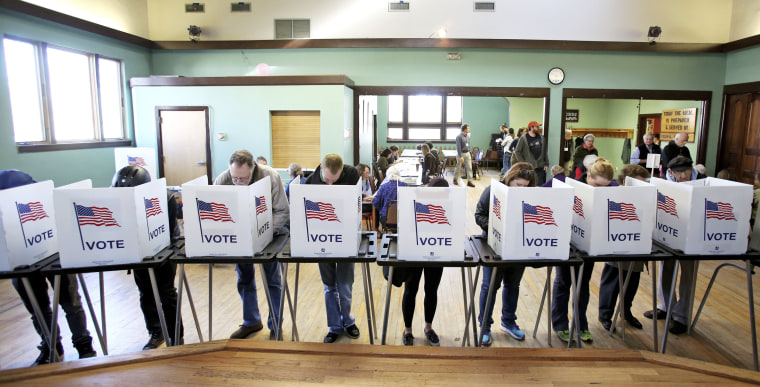WASHINGTON — The U.S. Supreme Court on Monday rejected two claims that states violate the Constitution when they become blatantly partisan in drawing the boundary lines for voting districts, dashing the hopes of political reformers who were hoping for a landmark ruling that could change the future of American politics.
In two unanimous decisions, the justices ruled that Wisconsin challengers failed to show that they were directly harmed by a new map for state legislative districts, and the court rejected a challenge to the boundaries for a congressional district in Maryland, finding that opponents had waited too long to sue.
The Supreme Court has long held that oddly shaped districts are unconstitutional when they put racial minorities at a disadvantage through gerrymandering. But lower courts have recently held that partisan gerrymandering can be unconstitutional, too.
Advocates of political change were hoping the justices would agree. Such a decision, they argued, would make elected representatives more attentive to the needs of voters, because their districts could no longer be engineered to ensure a victory.
"The Supreme Court has kicked this can down the road for the umpteenth time in almost 50 years, unable to come up for a rule to determine how much politics is too much in drawing district lines," said Tom Goldstein, a Supreme Court expert and publisher of the SCOTUSblog website. "And there's no good sign that an answer is coming anytime soon."
In the Wisconsin case, the court declined to invalidate legislative districts drawn by Republicans to the disadvantage of Democrats and a congressional district map drawn by Democrats in Maryland that made it harder for a Republican to get elected.
In Wisconsin, a group of voters sued after the GOP-controlled legislature drew new district lines for the state Assembly following the 2010 census. Though Wisconsin residents are about equally divided along party lines, the new map gave Republicans control of two-thirds of those seats. A federal appeals court declared the redistricting plan an unconstitutional partisan gerrymander and said it placed Democrats at such a disadvantage that they could not muster a legislative majority.
The Wisconsin challengers proposed a legal test they called the "efficiency gap" — a statistical measurement of how many votes in each party were wasted, either because they were so diluted in rural districts they could never achieve a majority or were so concentrated in urban ones that their numbers far exceeded the levels needed to get a majority.
A group of current and former Republican office-holders — including former California Gov. Arnold Schwarzenegger, Ohio Governor John Kasich, and former U.S. senators Bob Dole and Alan Simpson — signed on with the challengers. They said partisan gerrymanders enable politicians to choose their voters instead of letting voters elect their politicians, contributing to partisan gridlock in Congress.
Schwarzenegger said that the court's action was not "the end of the war for fair districts," but a call for further action.
The Supreme Court's ruling gives the Wisconsin challengers another chance to try to prove that they were directly harmed by the redistricting, and the court's four liberals raised the prospect that such a refined statewide attack might succeed.
In Maryland, Republican voters challenged the redrawing of Maryland's 6th Congressional District in 2011, which gave Democrats a seat in the U.S. House that a Republican, Roscoe Bartlett, held for two decades. He was re-elected by a 28 percent margin in 2010. After the redistricting, he lost by a 21 percent margin.
Monday's decision was consistent with past rulings in which the Supreme Court concluded that because redistricting was essentially a partisan political act, it would be impossible for the courts to know when gerrymandering became unconstitutional. In 2004, the court rejected a claim that a Pennsylvania gerrymander was too partisan, though Justice Anthony Kennedy indicated such a lawsuit might succeed if the right kind of proof came along.
But for a majority of the current justices, such a legal test remains elusive.
